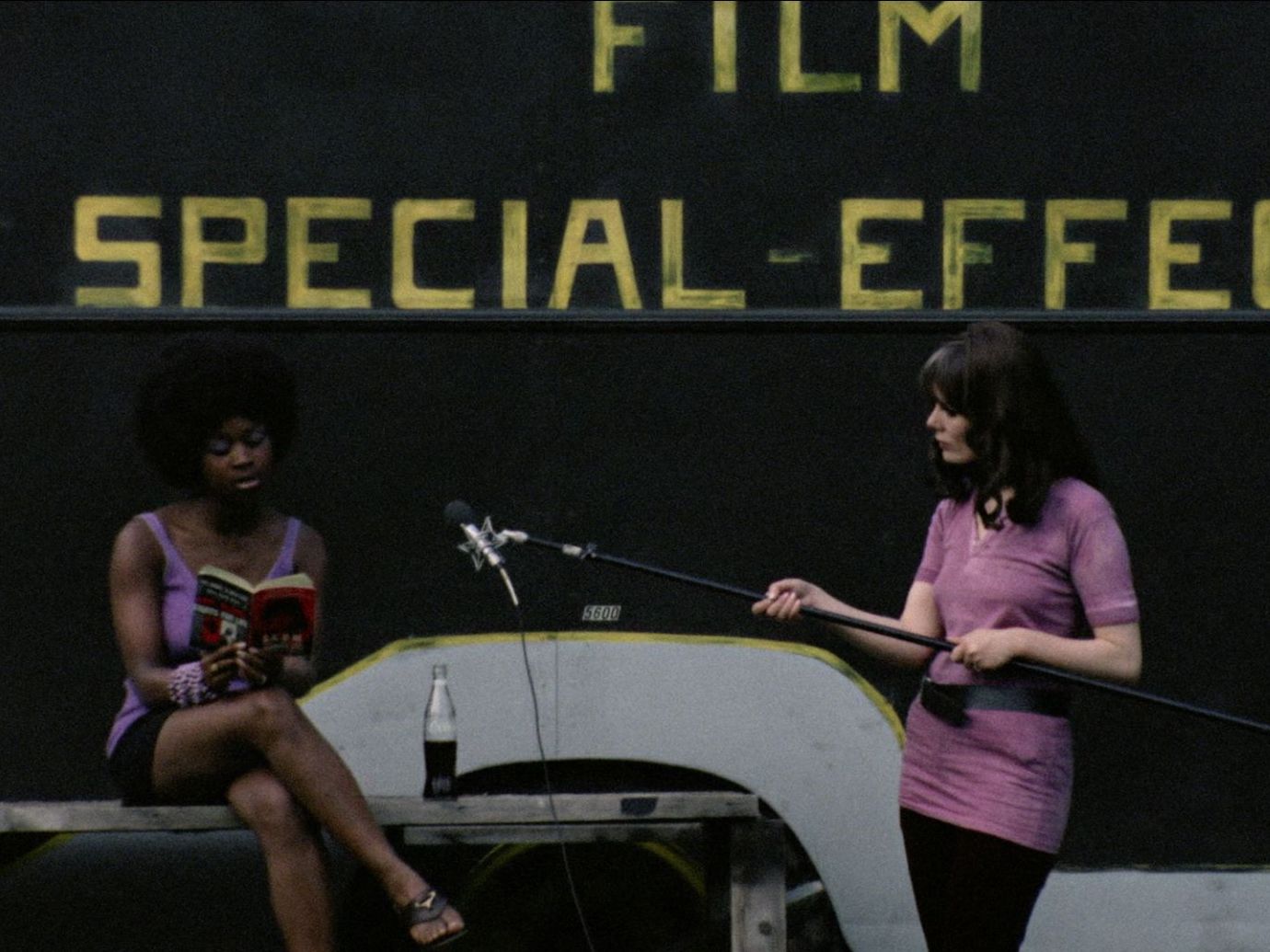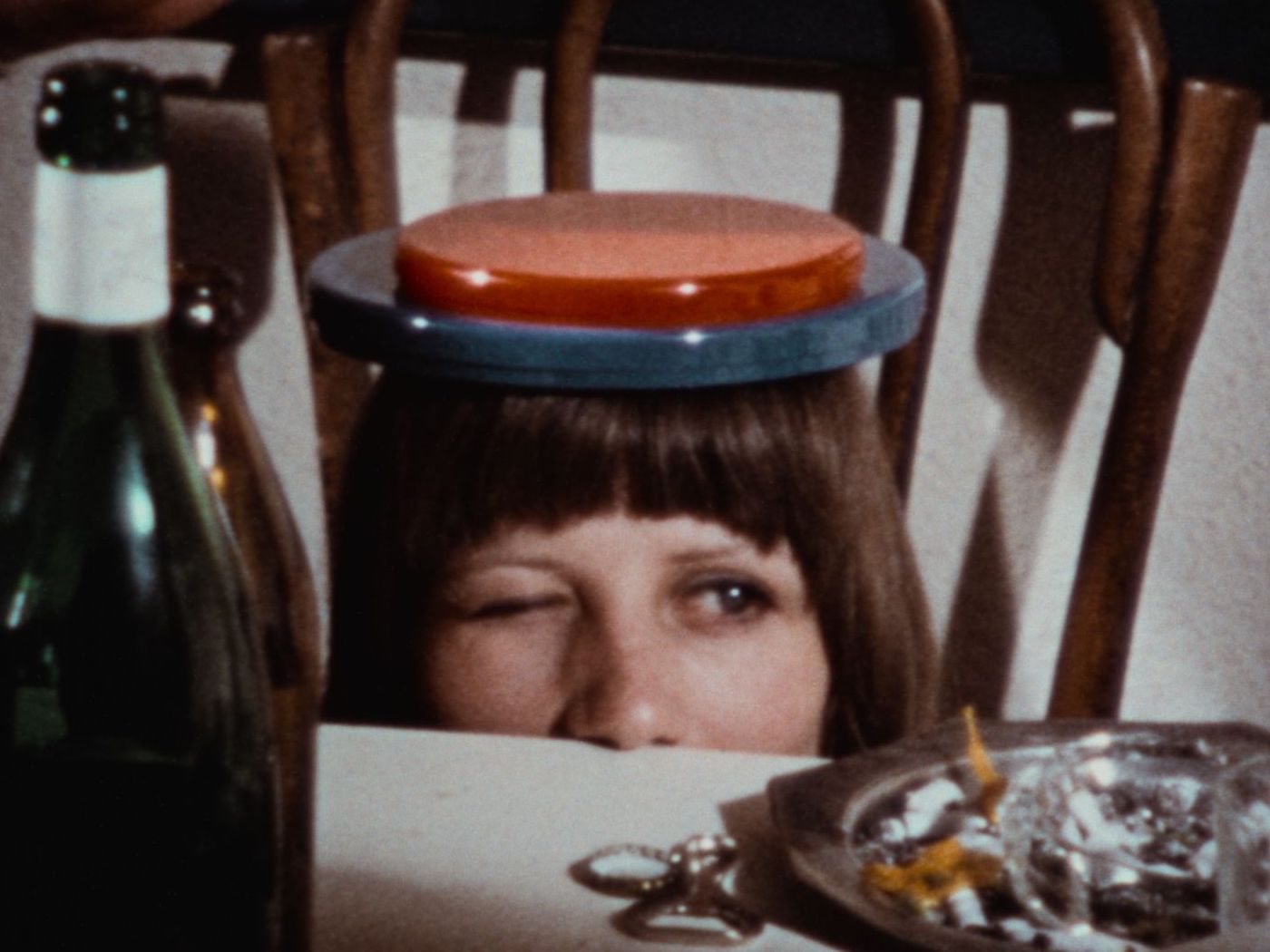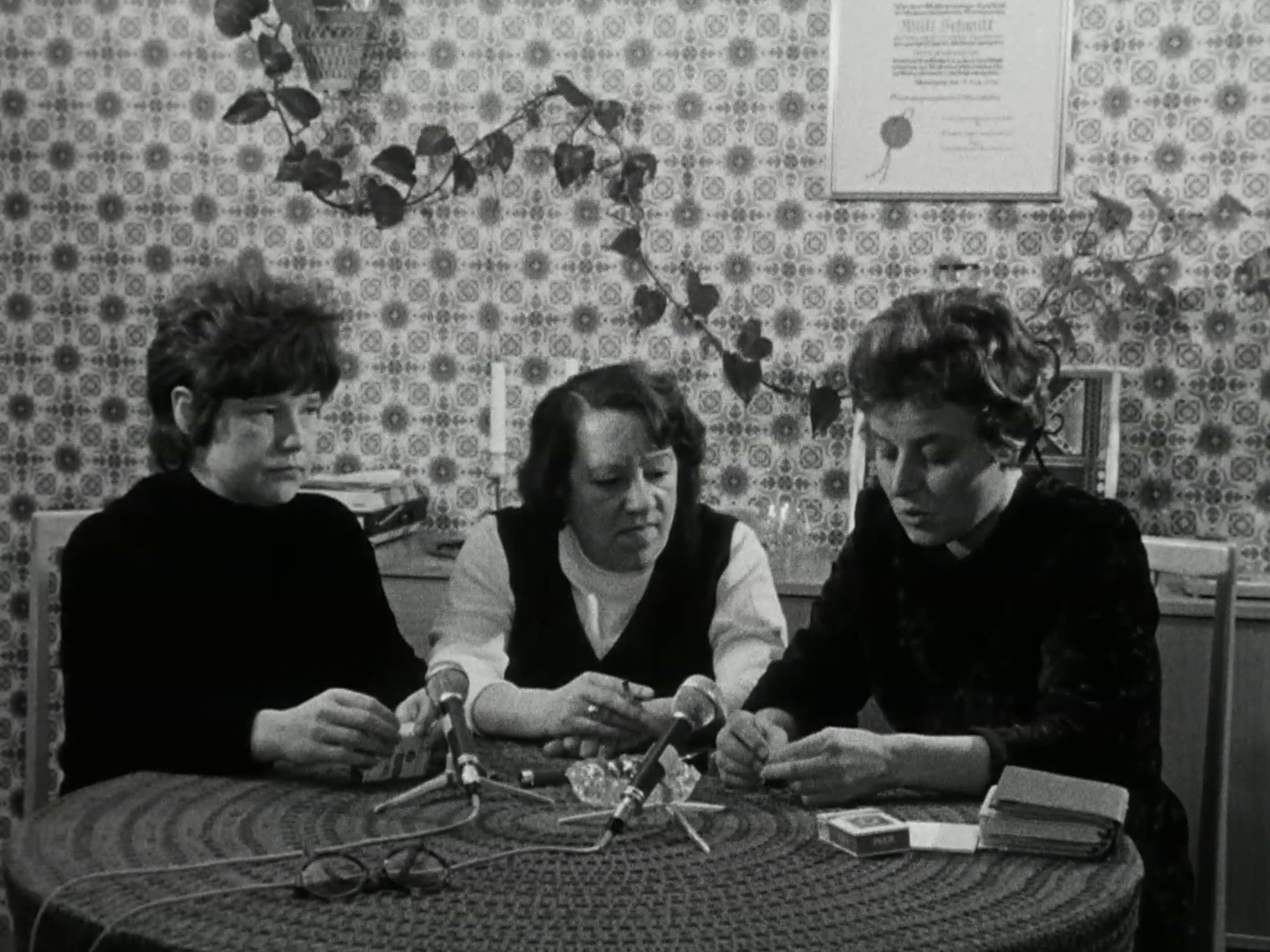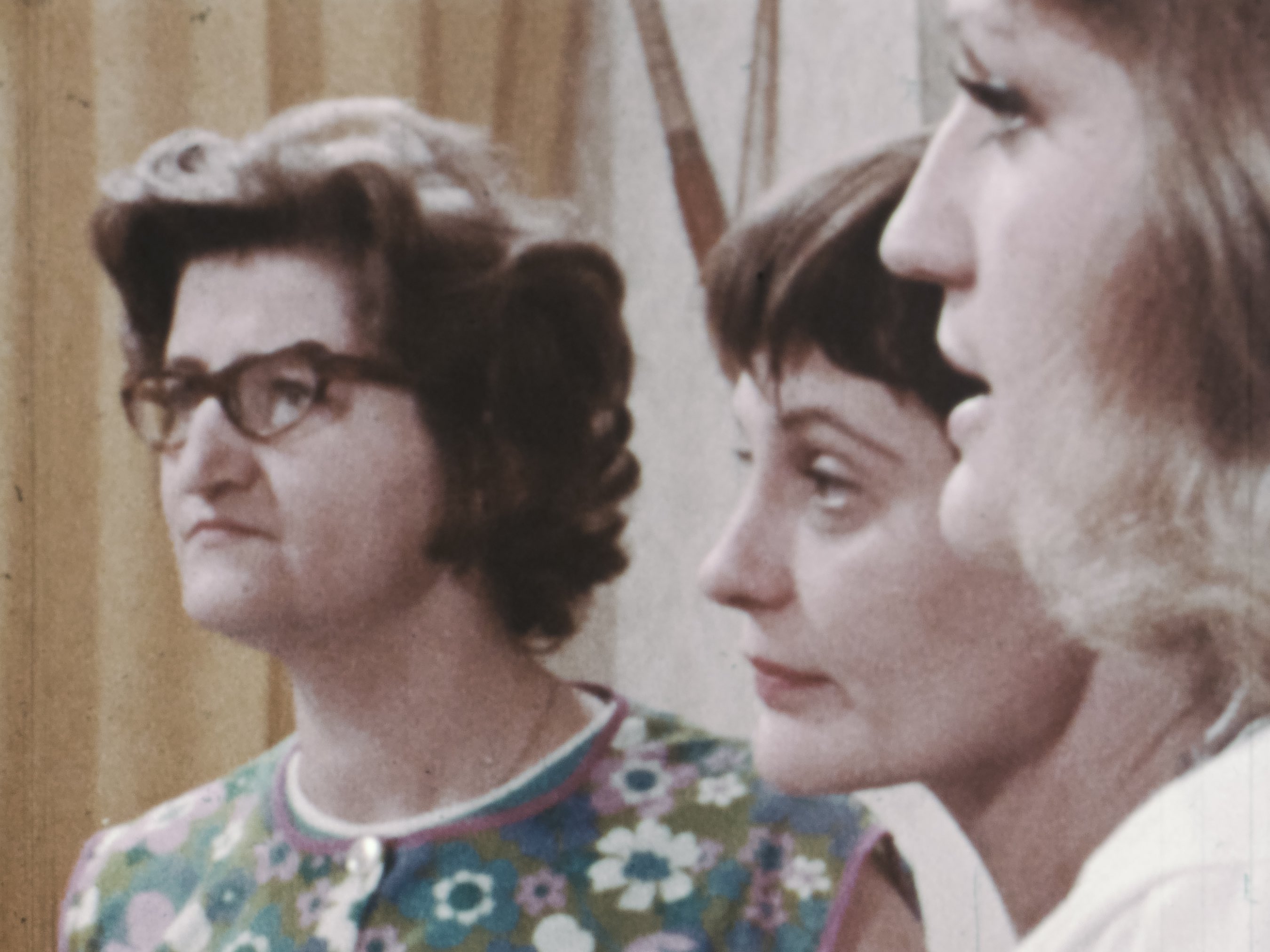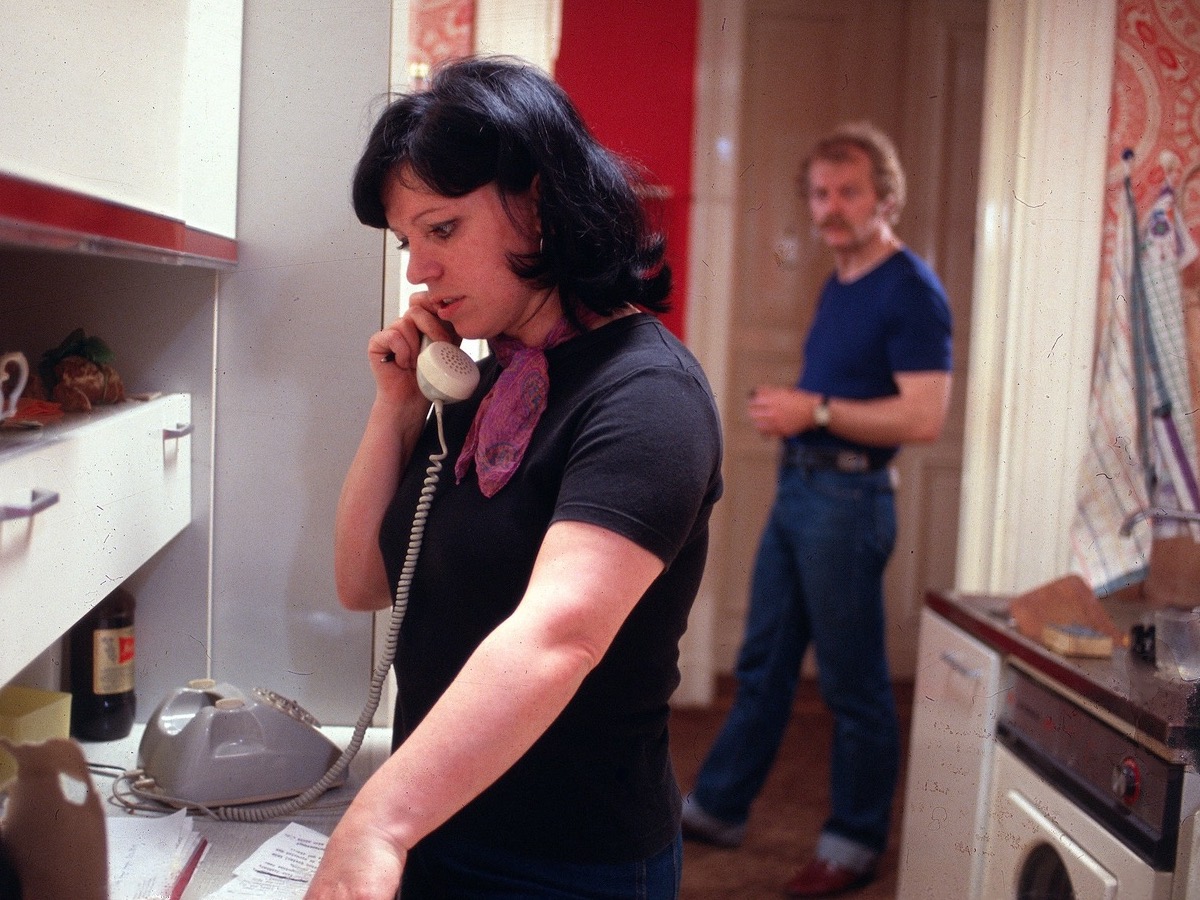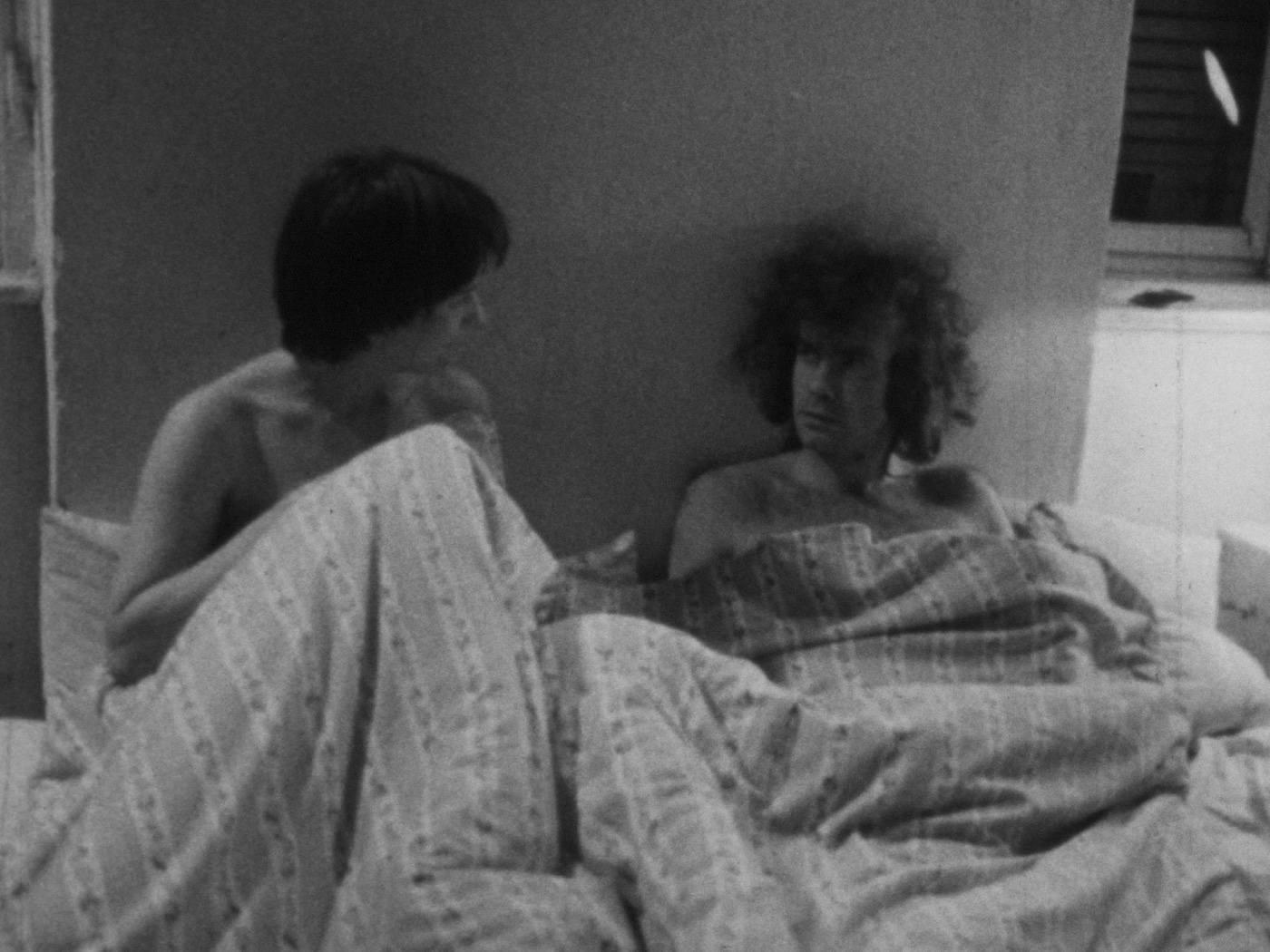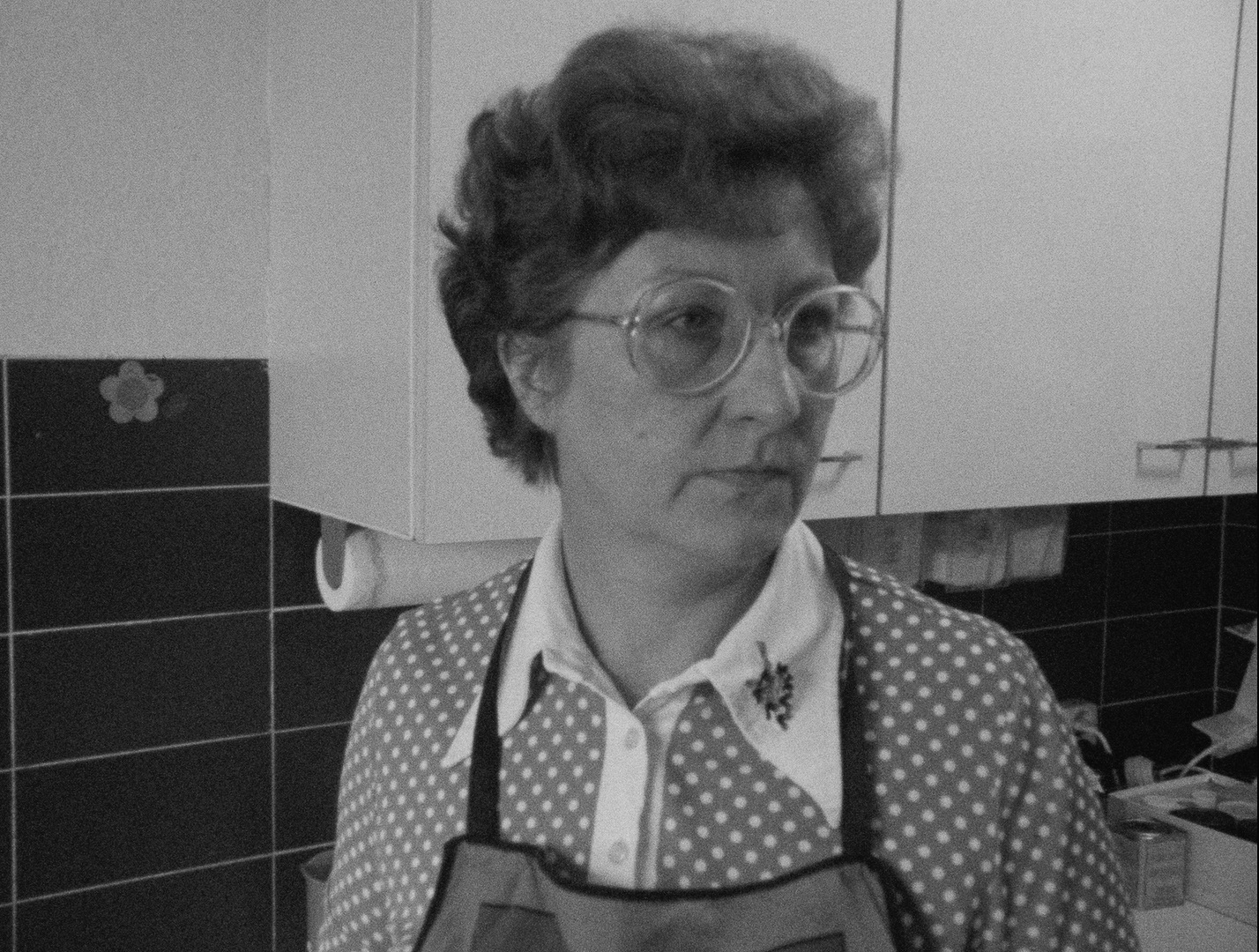The history of New German Cinema is littered with the familiar names, heralded again and again as examples of the radical politics and aesthetics reacting to social movements within West Germany. Figures such as Rainer Werner Fassbinder, Werner Herzog, Wim Wenders, Volker Schlöndorff still receive the spotlight when conversations drift to this period of film history. Continually marginalised, however, are the numerous women who made films that were aesthetically and socially engaged. Films that challenged traditional methods of production and still offer an example of how politically engaged filmmaking can look. Films that, as the above quotation from Helga Reidemeister states, not just focused on overlooked subjects, but strove to engage with them in a direct way. We Have Long Been Silent highlights a handful of this vast and diverse output from the many women who were producing work in West Germany throughout the 1970s. The films showcased here offer examples of the transformative power of cinema and of the essential role of dialogue, of offering marginalised people space to articulate their own personal and political struggles.
In putting together this programme there were many key figures and films who could not be included. Helke Sander, Helma Sanders-Brahms, Ulrike Öttinger, Mehrangis Montazami-Dabui, Sema Poyraz, amongst many others, are all absent, the idea being to point to something much larger and not containable in the context of any retrospective. The films were chosen due to the role of conversation as a way of enabling political processes. All of the films give voice to marginalised women to speak for themselves and to narrate their own experiences. The films also map the shifts in approaches to how the medium of film can be used politically and how relationships between filmer and filmed can be rethought and redefined. They are examples of how the innate hierarchies of filmmaking can be challenged.
Formally, the films differ vastly. From the works by student film collectives with key focus on knowledge raising, 8mm film works, documentaries made in collaboration with their subjects. There are many wide ranging themes that include labour, sexual politics, violence against women, immaterial labour and the politics of housework, and reproductive freedoms. At the heart of these narratives lies a profound commitment to dialogue, serving as a catalyst for understanding, empathy, and collective action.
The material production of these films is key to understanding how they were made, and what subsequently has been lost. The importance of film schools, the majority of these films made within that context, and Ula Stöckl and Claudia von Alemann having begun their careers at the university of Ulm, gave a freedom to what could be produced as well as space to reflect on new working methods independent of a commercial film sector.
We Have Long Been Silent glimpses at an all but forgotten approach to cinema, to a way of producing films with the purpose of social change. To politically engaged filmmaking not just in content, but in addressing the conditions of its production. As the title of Claudia von Alemann’s film states, the point is to change the world, not just document it.
Curated by Kristofer Woods
Thanks to Masha Matzke, Julia Milz, Anke Hahn (Deutsche Kinemathek), Maximilien Luc Proctor, Christina Uflacker, Carsten Zimmer (Arsenal Institut für Film- und Video)
Supported by Deutsche Kinemathek
Supported by Sabzian
PART OF Sabzian Events



